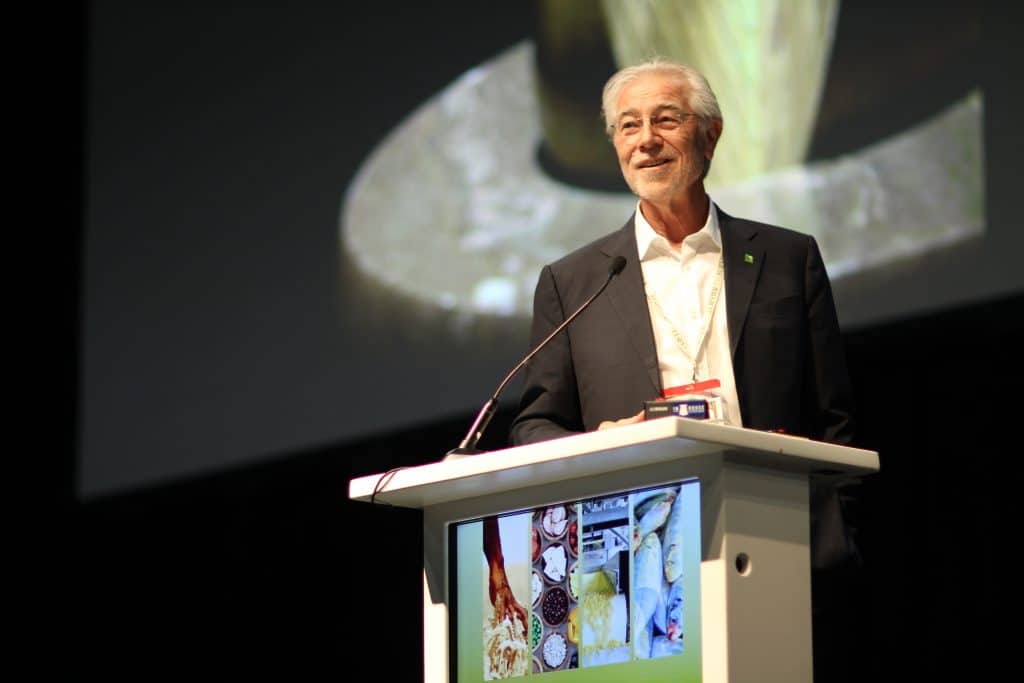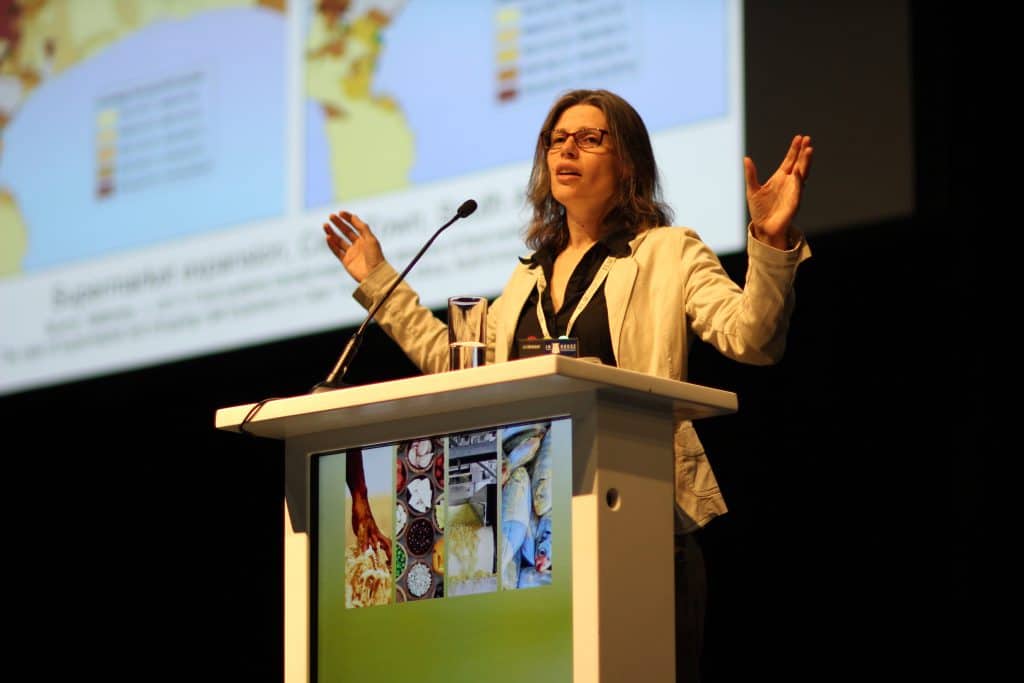
Food prices need to rise, so farmers can be fairly reimbursed. Then the money from the subsidies they will no longer need to make a decent living can be repurposed to take care of the poor.
That was the provocative view expressed by Dr Hans Herren, president of the Millennium Institute and founder and chairman of the Biovision Foundation, who is one of the world’s leading experts on biological pest control.
Addressing the role of agriculture in sustainable food systems, Herren was adamant the world was overdue for a paradigm shift in its food production and nutrition, which included abandoning the current obsession with cheap food.
He was delivering the 2017 Swaminathan Lecture – a lecture series aimed at promoting the work of a senior researcher whose life and career has been devoted to working on agriculture and food issues – at the 3rd International Conference on Global Food Security, currently taking place in Cape Town.
“We all want cheap food so we don’t have riots in the streets, no matter how bad it is, no matter how much residue is in it, no matter how many farmers are bankrupted, or how much land is destroyed.
“We have to all think about paying more for food, so that farmers can begin to live without the subsidies, which total almost $300billion a year. This could be used to help the poor afford food while everything gets rebalanced,” Herren argued.
He supports a shift from conventional solutions, including chemical fertilisers, pesticides and genetically modified organisms, to regenerative ecological approaches.
“We are stuck in that old system, policymakers are stuck in that old system and we need to get them out,” he said, adding that scientists had a “new job” as pioneers for change.
He had no time for the naysayers who said such an approach wouldn’t work, nor for those pushing only improvements of yield-per-hectare as an approach to addressing food security.
“We are done with that. We need to change the matrix. Everyone wants to export food rather than take care of their own people with good, nutritious food. Localised food systems are where we need to go,” he said.
That approach indicated short-term thinking, yet in agriculture, interventions worked only in the medium to long term. Soil that was destroyed in a couple of years, for instance, took as long as 20 years to rebuild.
“There are organic farmers making it in this world so no one must tell me it can’t be done. If it weren’t possible, there wouldn’t be a single one,” he said.
Herren made reference to the push-pull farming method, which uses intercropping to protect crops from pests, as an example of ecological agriculture that had allowed farmers in East Africa to double or even triple their yields.
“We all hear about how we’re all going to starve to death if we go organic, but it’s all scaremongering. If the West produced 10% less food who would care? We throw away 40% of our food anyway,” he said, expressing frustration that despite proof of successes with ecological methods, governments continued to support the agro-industry, particularly GMOs.
Meanwhile, the University of Cape Town’s Professor Jane Battersby, in the address that followed, issued her own warning about the dangers of assuming Africa was “rural and hungry”, when South Africa was already 64% urban with forecasts of 55% urbanisation by 2050 for the rest of the continent.

Dr Jane Battersby winner of the 2017 Premio Daniel Carasso international prize
This, she said, threw up new challenges in respect of urban food security that weren’t going to be remedied with the standard “plant a food garden” suggestion.
The future focus on food security should not be on rural solutions only, when South Africa’s joint burden of obesity and simultaneous stunting provided evidence of an entire system that was failing to deliver.
“The business-as-usual approach is not working. The solutions-as-usual approach is not working,” said Battersby, winner of the 2017 Premio Daniel Carasso international prize, awarded to “an outstanding researcher who has developed high level research with impact on sustainable food systems”.
She was delivering the Premio Daniel Carasso Laureate 2017 Keynote address at the conference.
Achieving urban food security, said Battersby, required much more than nutrition education, school feeding schemes and food gardens. The issue also needed to be afforded the same research and policy focus as rural food insecurity, in line with large-scale national data which showed rates for low-income rural and urban areas were highly comparable.
The kinds of policies, the kinds of programmes and NGO responses are not shifting persistent stunting, in the same way they’re not doing anything about rising obsesity. It’s clear that what we need are new kinds of solutions, new ways of doing research, and new ways of engaging with civil society
related Articles
South African cities face hunger and food insecurity as cost of living...
Originally published by the Mail&Guardian. “South Africa’s major cities are home to millions of people facing hunger and food insecurity…
Food price hikes: Save money, support your local street trader
Fruit vendor in Church street, Johannesburg, South Africa. Photo: Ossewa/Wikimedia Commons. When Statistics South Africa (Stats SA) released the consumer…
New book: “Resilience and Food Security in a Food Systems Context”
Resilience and Food Security in a Food Systems Context is a recently published, open-access resource which delves into why we…



